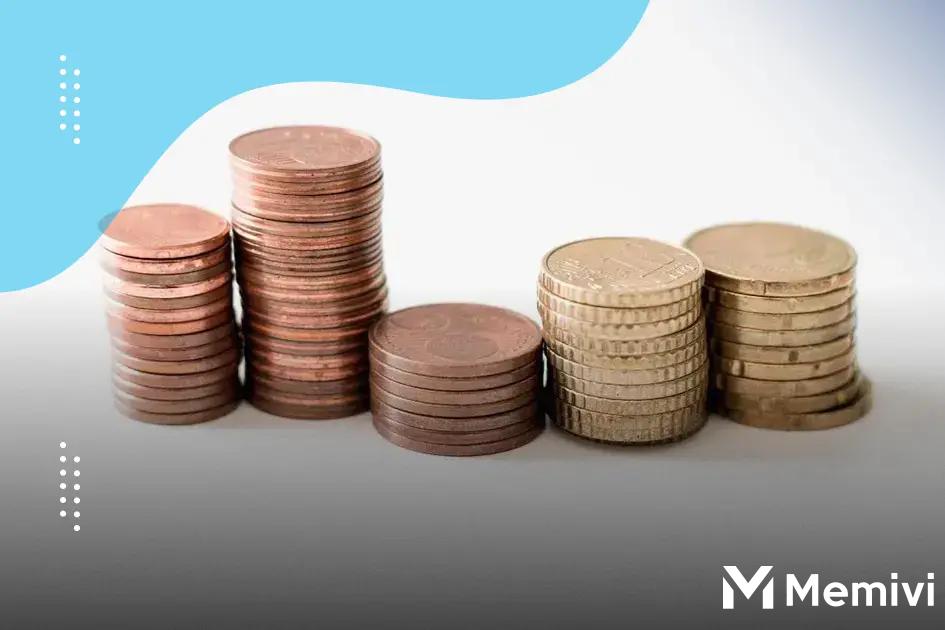
Inflation is a concern for everyone in today’s economy. With rising prices affecting essential goods, developing effective saving strategies is crucial. In this post, we’ll explore practical methods, how to adjust budgets for inflationary impacts, and the importance of savvy investments. Our aim is to help you maintain financial stability through smart planning and foresight.
Assessing Your Current Financial Situation
Understanding where you stand financially is crucial in developing effective saving strategies amid inflation in 2023. Start by compiling a comprehensive list of your income sources. Include salaries, freelance earnings, rental income, and any other revenue streams. This helps in visualizing the total money entering your household.
Next, examine your expenses methodically. Break them down into categories such as essentials, discretionary spending, and savings contributions. Essentials might include housing costs, groceries, and utility bills, while discretionary spending could involve entertainment or dining out.
Use various tools to track your spending patterns. Digital solutions like financial apps or online banking can offer insights into where your money goes and help identify areas for adjustment.
It’s also crucial to review your debt commitments. List out any outstanding loans or credit card balances along with their interest rates. By knowing your liabilities, you can focus on prioritizing repayments or refinancing options that minimize financial strain.
Finally, evaluate your current savings status. Assess not only how much you have but also how quickly and efficiently you are saving relative to your goals. This helps in adjusting your plans to shield against inflation’s impacts.
By thoroughly assessing these aspects, you lay a strong foundation for making informed adjustments to your savings strategy, ensuring resilience in fluctuating economic conditions.
Adjusting Your Budget for Inflation

In times of inflation, adjusting your budget becomes essential. First, review your current expenses and identify areas where you can cut costs. Consider both fixed and variable expenses. For example, subscriptions and memberships can be reevaluated or canceled if not essential.
Look at your monthly grocery expenses and seek alternatives to save. This could include using discount codes, buying in bulk, or switching to generic brands.
Additionally, focus on energy-saving methods to reduce utility bills. Simple steps like turning off lights when not in use or reducing water wastage can make a difference.
Prioritize your essential needs over wants. Allocate funds thoughtfully while keeping room for rising costs. This helps maintain a balance without drastic lifestyle changes.
Regular budget reviews are crucial. By frequently assessing your financial status, you can tweak your budget to accommodate any further economic changes effectively.
Investing Wisely to Combat Inflation
Investing wisely is crucial when aiming to combat increasing inflation. As inflation rises, the value of your cash savings decreases over time. Therefore, it’s important to put your money into investments that can offer a real return above the inflation rate. One approach is focusing on diversified portfolios that include a mix of asset classes such as stocks, bonds, and real estate. Stocks, particularly those of companies with strong economic moats, can be effective as they have the potential to provide returns that outpace inflation.
Additionally, inflation-protected securities, like Treasury Inflation-Protected Securities (TIPS), offer a more stable choice for conservative investors. These are government bonds designed to protect investors from inflation fluctuations. For those considering the real estate market, it can be another hedge against inflation, as property values tend to rise over time along with rental yields.
While diversification is key, one should also consider the role of precious metals such as gold, silver, or even cryptocurrency investments. These alternative assets can serve as a store of value when traditional currencies lose purchasing power. However, such investments typically come with higher volatility, requiring thorough research and careful consideration.
Finally, maintaining a long-term perspective with your investments can help ride out periods of inflation and market volatility, ensuring your portfolio remains aligned with your financial goals. Regularly review and rebalance your investments to ensure they’re still on track to outpace inflation.
Building an Emergency Fund

An emergency fund is essential, especially during periods of high inflation. Preparing for unexpected expenses without compromising your financial stability is crucial. Begin by setting aside a small amount regularly. Consistency is key to building a substantial safety net over time.
Automate your savings whenever possible. Setting up automatic transfers from your checking account to a dedicated savings account ensures you prioritize your emergency fund.
Keep these funds easily accessible. A high-yield savings account can provide some returns without risking quick access. Aim for enough to cover three to six months’ worth of basic living expenses.
Regularly review and adjust your savings goal. As inflation affects living costs, it’s vital to reassess how much you need to keep your fund relevant.
Stay disciplined
and avoid using these savings for non-emergencies, ensuring your financial security remains intact.


 How to Maximize Your Employer 401(k) Match and Double Your Retirement Savings <p class='sec-title' style='line-height: normal; font-weight: normal;font-size: 16px !important; text-align: left;margin-top: 8px;margin-bottom: 0px !important;'> Learn how to maximize your employer 401(k) match, boost your savings, and build long-term retirement wealth. </p>
How to Maximize Your Employer 401(k) Match and Double Your Retirement Savings <p class='sec-title' style='line-height: normal; font-weight: normal;font-size: 16px !important; text-align: left;margin-top: 8px;margin-bottom: 0px !important;'> Learn how to maximize your employer 401(k) match, boost your savings, and build long-term retirement wealth. </p>  401(k) vs. IRA vs. Roth IRA — Which One Fits Your Financial Goals? <p class='sec-title' style='line-height: normal; font-weight: normal;font-size: 16px !important; text-align: left;margin-top: 8px;margin-bottom: 0px !important;'> Understand the differences between 401(k), IRA, and Roth IRA plans, and learn how to choose the best retirement account. </p>
401(k) vs. IRA vs. Roth IRA — Which One Fits Your Financial Goals? <p class='sec-title' style='line-height: normal; font-weight: normal;font-size: 16px !important; text-align: left;margin-top: 8px;margin-bottom: 0px !important;'> Understand the differences between 401(k), IRA, and Roth IRA plans, and learn how to choose the best retirement account. </p>  How to Start Investing in the U.S. with Just $100 <p class='sec-title' style='line-height: normal; font-weight: normal;font-size: 16px !important; text-align: left;margin-top: 8px;margin-bottom: 0px !important;'> Learn how to start investing in the U.S. with just $100 using smart strategies that build wealth and financial confidence over time. </p>
How to Start Investing in the U.S. with Just $100 <p class='sec-title' style='line-height: normal; font-weight: normal;font-size: 16px !important; text-align: left;margin-top: 8px;margin-bottom: 0px !important;'> Learn how to start investing in the U.S. with just $100 using smart strategies that build wealth and financial confidence over time. </p>